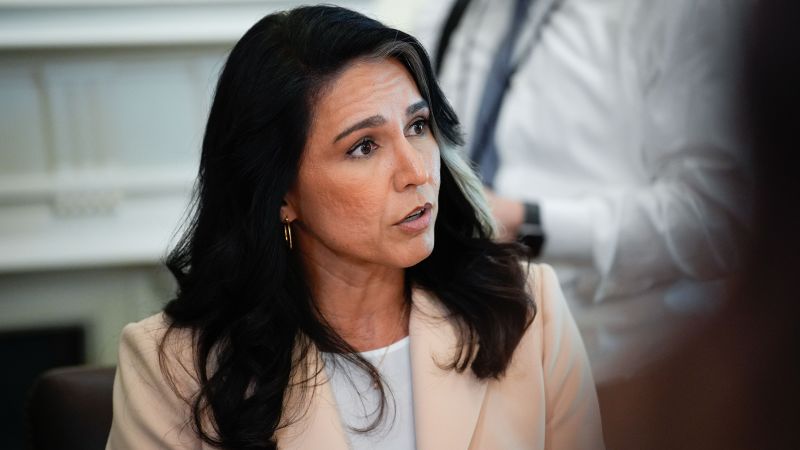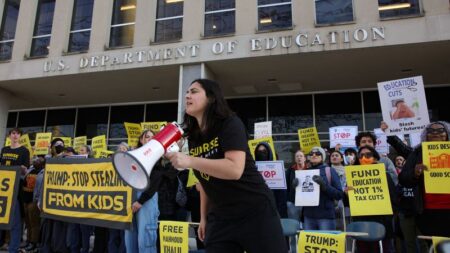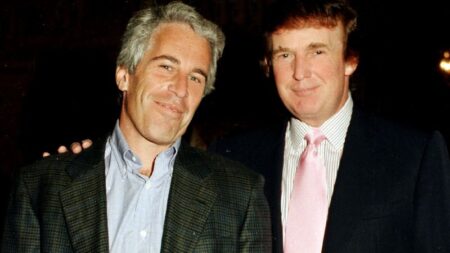On a recent Friday, Tulsi Gabbard, the Director of National Intelligence, took a bold stance against former officials from the Obama administration, threatening to escalate the situation by referring them to the Justice Department for potential criminal prosecution. This action marks a continuation of the theme where officials affiliated with President Donald Trump appear to target those they perceive as adversaries. This act raises significant questions about the integrity of the intelligence operations and the realm of partisan politics.
Gabbard’s actions included the declassification of documents that she asserted served as proof of a manipulated and politicized intelligence framework by the Obama administration. According to Gabbard, this manipulation was aimed at laying the groundwork for the FBI’s investigation concerning alleged Russian interference in the Trump election campaign of 2016. The conversation around these declassified documents is not merely a political maneuver; it reflects deep-rooted tensions within the US political landscape regarding intelligence assessments and national security.
In her public announcements, Gabbard indicated that all pertinent documents would be handed over to the Justice Department for a criminal referral. However, she refrained from specifying if any particular officials would be the subject of these referrals. It is important to note that a criminal referral does not automatically equate to a guarantee of investigation or prosecution by the Justice Department, raising questions about the next steps in this contentious political saga.
Adding to this complex situation, news reports emerged earlier this month indicating that the FBI is currently investigating former CIA Director John Brennan and former FBI Director James Comey. This investigation is focused on alleged false statements made to Congress, stemming from a referral by current CIA Director John Ratcliffe. This referral also relates to the overarching theme of intelligence assessments regarding Russia’s interference in the 2016 US election, further marring established trust in the intelligence community.
Gabbard and Ratcliffe’s concerted attempts to declassify documents are aimed at disputing the intelligence community’s 2017 conclusion that Russia interfered in the 2016 election with the intent to assist Donald Trump at the expense of his opponent, Hillary Clinton. This conclusion has fueled President Trump’s long-standing skepticism towards the intelligence community and its findings, indicating a divergence in narratives between Trump allies and traditional intelligence assessments.
It is essential to consider that while Gabbard and Ratcliffe challenge the validity of these intelligence conclusions, not all assessments align with their views. For instance, a bipartisan report from the Senate Intelligence Committee in 2020 confirmed the intelligence community’s assertion of Russian interference in the 2016 election. This disparity in findings raises critical questions about the sources and motivations behind various interpretations of intelligence data.
The response from Democratic leaders came swiftly, criticizing Gabbard’s release as an overt attempt to distort historical facts. Virginia Senator Mark Warner, who serves as the top Democrat on the Senate Intelligence Committee, highlighted the extensive bipartisan investigation that concluded Russia did indeed interfere in the elections. He accused Gabbard of attempting to manipulate the narrative, thus undermining public trust in the intelligence agencies she oversees.
Adding to the critique, Connecticut Representative Jim Himes, a prominent Democrat on the House Intelligence Committee, argued that every credible investigation, including the bipartisan Senate Intelligence Committee inquiry, verified the integrity of the 2016 Intelligence Community Assessment, dismissing claims of politicization in intelligence matters.
The broader context of this unfolding drama includes the FBI’s investigation into the Trump campaign, which initiated in 2016 and lingered for the duration of Trump’s presidency. The inquiry evolved into scrutinies by the Justice Department’s inspector general and by Special Counsel John Durham, appointed to review the intelligence handling that led to the Russia probe. Although Durham’s inquiry concluded without finding significant wrongdoing in the intelligence handling, it did lead to the indictment of three individuals, including a former FBI lawyer who admitted to falsifying information during a surveillance request targeting a Trump campaign aide.
The situation remains fluid and complex, reflecting turbulent dynamics between intelligence assessments, political agendas, and the ongoing battle for trust in the space occupied by national security agencies. As the narrative continues to develop, observers find themselves questioning not only the integrity of the involved parties but also the stability of public confidence in the institutions designed to protect national interests. CNN’s Shania Shelton contributed to this evolving story, underscoring the ongoing engagement of media in informing the public on these pivotal matters.











